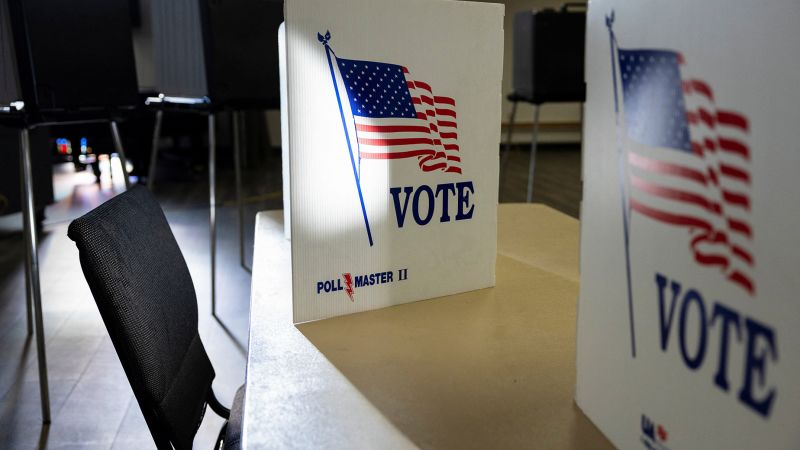Former President Donald Trump has been pushing the baseless claim that the 2020 election results were tainted by widespread fraud. As a solution to this issue, Trump has proposed a four-part plan, which includes switching exclusively to paper ballots, requiring proof of citizenship to register to vote, mandating voters to show ID at the polls, and eliminating mail-in voting by holding the entire election in-person on one day. While some of these proposals are up for debate, the focus on “paper ballots” has puzzled experts and election officials, as the vast majority of voters already use paper ballots.
Trump’s insistence on switching to “paper ballots” is nonsensical, as over 98% of voters in the US live in jurisdictions that produce fully auditable paper trails. Verified Voting, a nonpartisan group, has been advocating for the move away from paperless voting for the past two decades, and they have largely achieved their goal. Despite claims from Trump and others, the overwhelming majority of voters already use paper ballots, providing a paper trail that can be checked during post-election audits or recounts.
The trend towards using paper ballots has been steadily increasing over the past 20 years, with states like Pennsylvania and Georgia transitioning away from paperless machines after the 2016 election. Battleground states and several other states have also made the switch to systems with paper trails since the 2020 election. This move towards paper ballots has been shown to increase confidence in the integrity of the election process.
False and nonsensical claims about election procedures, such as the need for “paper ballots,” have had a negative impact on voter perceptions of the integrity of US elections, especially among Republicans. Recent polling shows that a majority of Trump supporters in key states are not confident in the accuracy of election results and that a significant portion are not prepared to accept the outcome of the election. Despite the progress made in transitioning to paper ballots, there remains a lack of understanding and appreciation for the improvements made in election security.
Overall, the push for “paper ballots” as a solution to election integrity issues is misguided, as the vast majority of voters already use paper ballots that provide a verifiable paper trail. While there may be room for debate on other proposed election reforms, the focus on “paper ballots” as a solution is not supported by the facts. It is important for policymakers and the public to have accurate information about the current state of election procedures in order to address any legitimate concerns and maintain confidence in the integrity of the electoral process.













